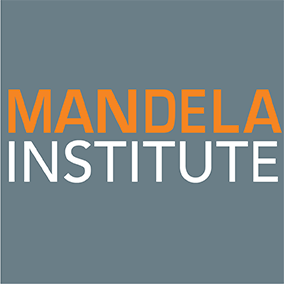Divorce Mediation
Application Form
Complete Online Application Form at
/zahrah/display/external/public/163/AabSAeQlpQ#section-intro
Start Date
22 July 2024
Apply By
21 June 2024
Cost
R13,900.00
Duration & Format
This is a block release course where participants attend daily lectures from 08:30 to 16:30 during the period 22 to 26 July 2024. Courses might be delivered through blended learning. Students are required to have basic computer skills and stable internet connection.
Overview
The aim of the Divorce Mediation course is to provide the required knowledge and skills to conduct divorce mediations, to deal with conflict situations and to formulate a parenting plan or settlement agreement.
Course Outcomes
At the end of the course participants should be able to:
- Describe the differences and characteristics between mediation, negotiation, arbitration, and litigation;
- Explain the advantages of mediation compared to other forms of dispute resolution;
- Interpret the South African Court rules, regulations, and forms governing family mediation;
- Assess the personal and family financial information that is necessary for divorce and custody mediations;
- Assess the impact of divorce and conflict in the home on children;
- Describe the stages of children’s development and the impact of those on custody/ parenting agreements;
- Explain the qualities and characteristics of a good mediator as well as appropriate mediator behaviours;
- Identify how, as a mediator, to build trust, empathy, and rapport with clients while remaining impartial and neutral;
- Differentiate the stages of mediation and the structure and appropriate content of each stage;
- Define the common obstacles to a successful mediation and how to overcome them;
- Explain when and how to refer parties to outside resources;
- Draft a parenting plan and a settlement agreement.
Course Content
The course consists of the following modules:
- Conflict - understanding and effective management: The theory of conflict, conflict management, approaches to conflict management is developed through practical exercises;
- Negotiation - understanding, needs based approach and effective skills: The experience of negotiation is developed from a negotiators point of view, best practice on negotiation is explored;
- Alternative Dispute Resolution (ADR) processes: The various ADR processes are unpacked, and a common understanding developed;
- Mediation – understanding and context: A clear focus is provided on mediation- what is it, where does it play a role, advantages and disadvantages, the nature of mediation and where is it best used;
- Focusing on the children, including parenting plans, and the children’s participation in the mediation process;
- Financial implications of divorce – dealing with issues of maintenance and distribution of assets and liabilities;
- Mediator Skills: The various skills required to mediate a matter is developed;
- Self- awareness: This critical area appreciates the need for mediators to be more aware of their personality and role in resolving conflict;
- Ethics: Mediator Ethics is developed with a guideline and practical scenarios to ensure that the mindset is one of responsibility.
Target Audience
Family lawyers, mediators, counselors, social workers, and individuals interested in becoming divorce mediators.
Application Process
A relevant tertiary degree in law or psychology or at least 5 years work experience in mediation.
You will be required to submit a copy of your Bachelor’s Degree, academic record as well as a copy of your identity document or passport.
A detailed Curriculum Vitae will be required if your application is based on work experience.
Kindly note that all foreign qualifications must be submitted with a SAQA Evaluation Letter.
Additional Information
The following certificates can be obtained:
- Certificate of Competence: To obtain a certificate of competence, students are required to attend and participate in 75% of the lectures and to complete the assessments as required in the course.
- Please note that a Certificate of Attendance is not available for this course.
This postgraduate certificate course is accredited by the university in accordance with its statutory mandate. It does not lead to a qualification registered on the National Qualifications Framework
Enquiries
Mahlatse Masemola Tel No: +27 11 717 8438; Email mahlatse.masemola@wits.ac.za
Ursula Dillner-Dangor Tel No: +27 11 717 8435; Email: ursula.dillner-dangor@wits.ac.za
Website www.wits.ac.za/mandelainstitute/short-courses/

